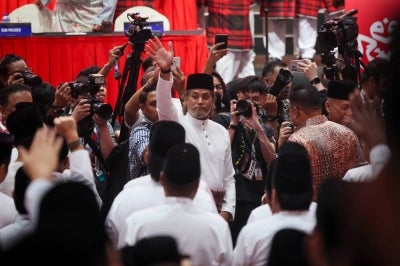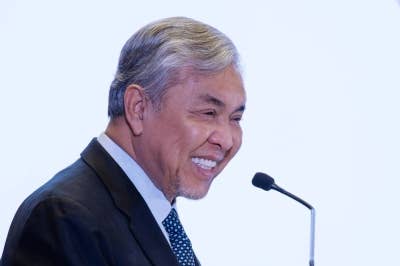The cost of early EPF withdrawals: Regrets and lessons
Many use the cliche excuse of fearing they might miss out before they get to use it, saying it is better to spend the money now rather than dying without having used it.

SHAH ALAM - Before receiving the money, some people promised themselves that they would only withdraw funds from the Employees Provident Fund (EPF) for emergencies.
Some even pledged not to use the money for spending but only for saving or investing.
However, once the money is in their hands, the story changes and they find themselves wanting to buy various items, even though they know this money is meant for their old age.
Many use the cliche excuse of fearing they might miss out before they get to use it, saying it is better to spend the money now rather than dying without having used it.
After all, it is their own money.
This situation arises when some contributors misuse the government initiative allowing EPF withdrawals since the Covid-19 pandemic hit the country.
Ironically, it is not only those who were truly desperate to withdraw their retirement funds but also those who were less affected and still receiving a salary each month who are hastily making withdrawals.
There is no denying that the government’s initiative allowing three EPF withdrawals has provided a lifeline to those severely impacted by the Covid-19 pandemic.
However, after four years since this initiative was introduced, we are now hearing expressions of regret from contributors who withdrew their retirement funds.
Recently, media reports have highlighted contributors admitting that they made a mistake by withdrawing their money through various government initiatives introduced previously.
According to them, most of the money withdrawn, whether through i-Lestari, i-Citra, or i-Sinar, has been spent.
They regret that the so-called emergency funds have been used to buy new mobile phones, car rims, luxury furniture and other personal desires.
This situation has led some contributors to choose not to transfer a portion of their remaining savings from the Sejahtera Account or Account 2 to the newly introduced Flexible Account.
If withdrawals continue, it appears that the retirement savings will deplete further.
Quoting the statement of Deputy Finance Minister I, Datuk Seri Ahmad Maslan, citizens need to have a basic savings of at least RM240,000 to retire comfortably at age 55.
This savings is estimated to allow for around RM1,000 per month after retirement.
It is more concerning that 6.3 million EPF members under the age of 55, or 48 per cent, had less than RM10,000 in their accounts as of 30 Sept last year.
Remember, Malaysia is on track to become an ageing nation by 2030.
The Statistics Department (DOSM) reported that the percentage of the population classified as elderly (aged 65 and over) increased to 7.3 per cent in 2022, compared to 7.0 per cent in 2021 of the total Malaysian population.
According to the United Nations definition, Malaysia is already considered an ageing country, with the median age rising from 30.1 years in 2021 to 30.4 years in 2022.
According to DOSM projections, by 2030, about 15.3 per cent of the Malaysian population will be over 60 years old.
As of 2022, approximately 11.1 per cent, or 3.6 million people, were over 60, which is the typical retirement age for many Malaysians.
Economic analyst Associate Professor Dr Aimi Zulhazmi Abdul Rashid said that with the increased life expectancy of Malaysians to 73.4 years compared to a decade ago, various preparations need to be made to ensure they can navigate their golden years comfortably.
Therefore, the author urges the 3.4 million out of 13.1 million contributors under 55 who have made withdrawals from the Flexible Account as of 19 July to use the money wisely.
For those considering spending their Flexible Account funds, let the regrets of other contributors serve as a lesson.
Do not suffer in your golden years when retirement savings are depleted, and you are still ‘not dead yet.’
* Nurkhairini Jumari is the Web Content Editor at Sinar Harian
Download Sinar Daily application.Click Here!















